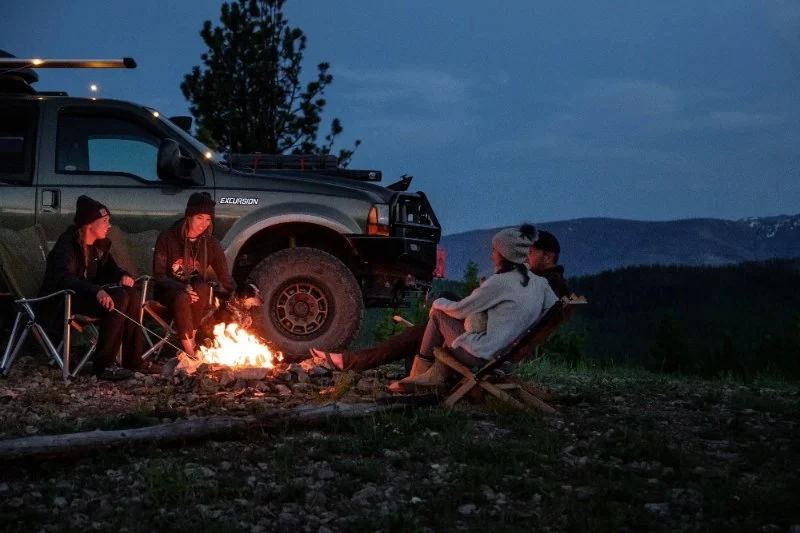Learn how to deal with food poisoning and vomiting while camping. Discover prevention tips, first aid strategies, and when to seek medical help for safe outdoor adventures.

- Recognizing Symptoms of Food Poisoning in the Outdoors
- Common Causes of Food Poisoning While Camping
- Immediate Actions When Vomiting Occurs
- Hydration Strategies and Safe Recovery
- Real Camping Experience: Learning from Others
- Prevention Tips for Safe Camping Meals
- When to Seek Professional Medical Help
Recognizing Symptoms of Food Poisoning in the Outdoors
Food poisoning can strike unexpectedly during a camping trip, and the symptoms often appear within hours of consuming contaminated food. Common signs include nausea, vomiting, diarrhea, stomach cramps, and fever. Recognizing these early signs is crucial, as dehydration can develop quickly in outdoor environments. While mild cases may resolve with rest and fluids, more severe symptoms need careful monitoring, especially if multiple campers are affected.
Common Causes of Food Poisoning While Camping
Improper food storage and handling are leading causes of food poisoning during outdoor adventures. Leaving meat unrefrigerated, consuming undercooked food, or using unclean utensils can introduce harmful bacteria like Salmonella or E. coli. For instance, a camping group in Colorado reported a widespread illness after consuming chicken cooked on a poorly maintained grill. Such real-life examples highlight how small lapses in food safety can quickly turn a trip into an emergency.
Immediate Actions When Vomiting Occurs
If vomiting begins, the first step is to stop consuming any food or drink until the stomach settles. Rest in a shaded, comfortable area and avoid strenuous activity. In most cases, the body uses vomiting as a defense mechanism to clear toxins. However, frequent vomiting can quickly deplete fluids, so monitoring the individual closely is essential. A well-prepared camper often carries a small first-aid kit that includes rehydration salts, which can be invaluable in these situations.
Hydration Strategies and Safe Recovery
Hydration is the key to recovery from food poisoning and vomiting. Small sips of clean water, electrolyte solutions, or clear broths can help replace lost fluids and minerals. Avoid alcohol, caffeine, and dairy products, as these may irritate the stomach further. At Pine Cliff Resort, many experienced campers emphasize packing lightweight hydration packs and electrolyte mixes for emergencies. Having these supplies on hand can make the difference between a quick recovery and a dangerous health situation.
Real Camping Experience: Learning from Others
One family camping in Yosemite shared how food poisoning disrupted their weekend adventure. After dinner, two members became ill with severe vomiting. Fortunately, they had packed oral rehydration salts and knew to keep the patients hydrated in small doses. Their quick thinking prevented a hospital visit. Such stories underline the importance of preparation, awareness, and calm decision-making in handling unexpected health challenges outdoors.
Prevention Tips for Safe Camping Meals
The best way to deal with food poisoning is prevention. Always keep raw and cooked foods separate, wash hands and utensils frequently, and use airtight containers. Invest in portable coolers or dry ice packs to maintain safe food temperatures. Campers should also boil water before drinking if unsure about its source. These precautions drastically reduce the risks and ensure that mealtime remains enjoyable rather than hazardous. Many outdoor enthusiasts recommend planning simple, easy-to-cook meals that minimize food safety risks while camping.
When to Seek Professional Medical Help
While many cases of food poisoning resolve within 24 to 48 hours, there are red flags that require immediate medical attention. These include blood in vomit or stool, high fever, persistent dehydration, or if symptoms last beyond two days. If camping in a remote location, it is wise to know the nearest emergency contact point or ranger station. Being proactive and cautious can save lives. For campers planning extended outdoor stays, resources from Pine Cliff Resort can provide guidance on health and safety essentials to pack before heading into the wilderness.
Baker Lake Rustic Campground
Grand Marais, MN 55604, USA
Visit Location PageShoal Bay Park
Shoal Bay Rd, New Blaine, AR 72851, USA
Visit Location Page